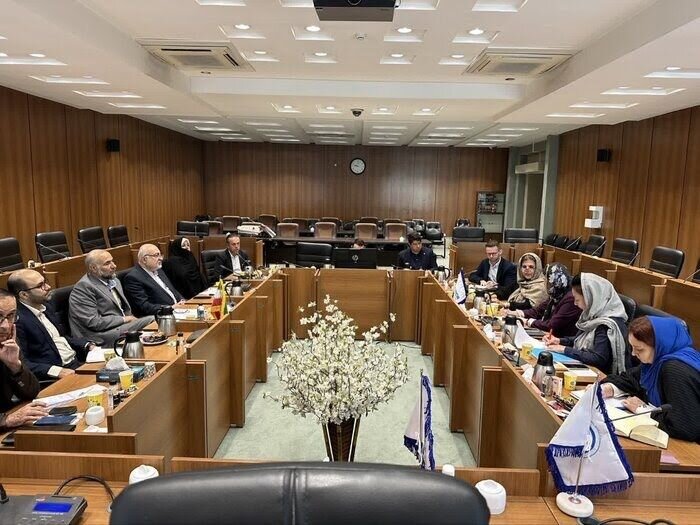National Organization for Migration, UNHCR discuss refugees

TEHRAN – The head of the National Organization for Migration, Abdollah Mobini, and the Regional Director for Asia and the Pacific of the United Nations High Commissioner for Refugees (UNHCR), Hai Kyung Jun, met on Sunday to enhance collaborations and find solutions to the problems related to refugees.
Lauding Iran’s generous hosting of refugees, displaced individuals, and immigrants, Kyung Jun announced that the UNHCR is trying to expand its support to Iran in various ways by assigning resources to compensate for the budget deficit, IRNA reported.
Mobini, for his part, stressed the presence of several million displaced immigrants and foreign refugees in Iran, as well as the extensive and generous services provided to them despite the unfair sanctions and the dual policy of the West.
The official further highlighted the fair responsibility of the international community to support refugees and facilitate the conditions for their return to their home countries.
Iran’s support for refugees
Iran’s support for refugees is demonstrated through its inclusive policies, which encompass protection, assistance, education, and healthcare, inspiring the global community and positively impacting the lives of refugees.
As the second-largest refugee-hosting country, Iran is currently host to one of the largest and most protracted refugee populations in the world, the majority of whom are Afghan refugees.
The country is home to over 800,000 registered refugees and some 2.6 million undocumented Afghans.
Currently, more than 500,000 Afghan children - including undocumented Afghans and those who have newly arrived in Iran following the Taliban takeover - are benefitting from Iran’s inclusive education policies, one of the most progressive in the world.
In total, Iran hosts some 4.5 million Afghans of varying status – including resident permit holders, undocumented Afghans, and family passport holders – many of whom have been in the country for an extended period and require support to strengthen their resilience.
Iran’s generous and exceptional services for refugees despite unfair economic sanctions have exceeded expectations and international responsibilities.
The government of Iran has made a very generous effort to provide services to millions of refugees and foreign nationals despite difficult living conditions and oppressive economic sanctions imposed on the country.
UNHCR services
In August, the UNHCR donated a consignment of essential medical equipment and supplies to the Ministry of Health and Medical Education (MoHME) to enhance the quality of healthcare services for both refugees and communities that generously host them.
It bolsters Iran’s healthcare capacity in managing critical health challenges including communicable diseases that are a public health concern and affect people, regardless of their nationality or documentation situation, the UNHCR website announced in a press release on August 28.
The consignment was part of a USD 30 million multi-year initiative to support refugee-inclusive health policies in Iran.
Inna Gladkova, Deputy Representative of UNHCR in Iran, lauded Iran’s commitment to inclusive health services: “For over four decades, Iran has ensured that millions of vulnerable individuals, including about 3.8 million displaced Afghans, have access to essential health services alongside the local population.
This handover marked another critical step in the ongoing collaboration between UNHCR, the National Organization for Migration, and the Ministry of Health.
Japan has been a leading supporter of UNHCR’s activities in the country for over a decade, particularly in the areas of education and healthcare for refugees, the UNHCR website announced in a press release on July 10.
The Government of Japan continues supporting UNHCR, the UN Refugee Agency, through its Supplementary Budget, and Partnership Grant Aid amounting to over US 4 million dollars, which helps Afghan refugees access health care in the Islamic Republic of Iran.
This generous funding will allow UNHCR to enhance access to quality education and healthcare services for Afghan refugees through Iran’s national educational and healthcare systems.
In February, some 200,000 foreign nationals in the country were provided with free health insurance with the financial support of the UNHCR, Mehr news agency quoted Mohammad-Mehdi Nasehi, the managing director of Iran Health Insurance Organization, as saying.
MT/MG
Leave a Comment